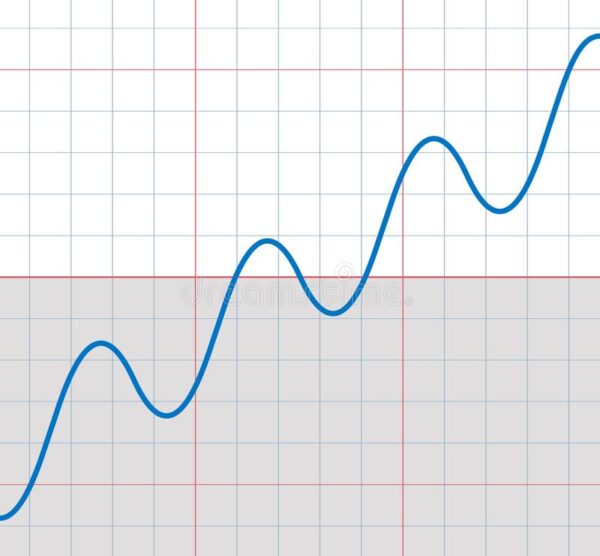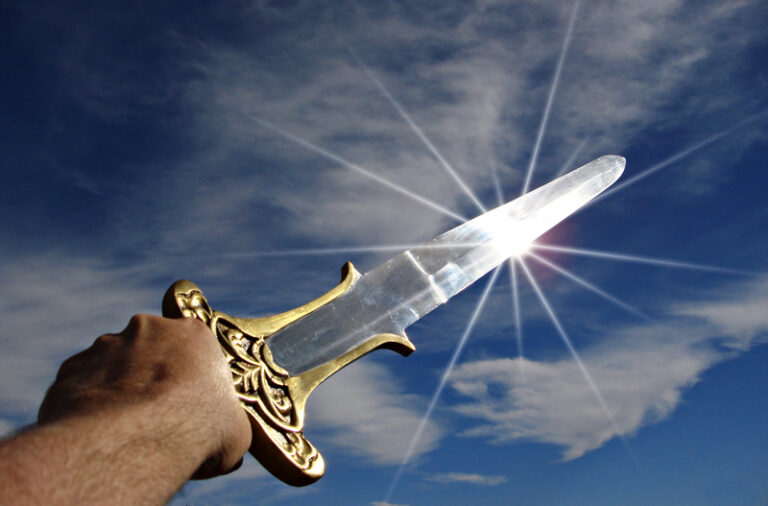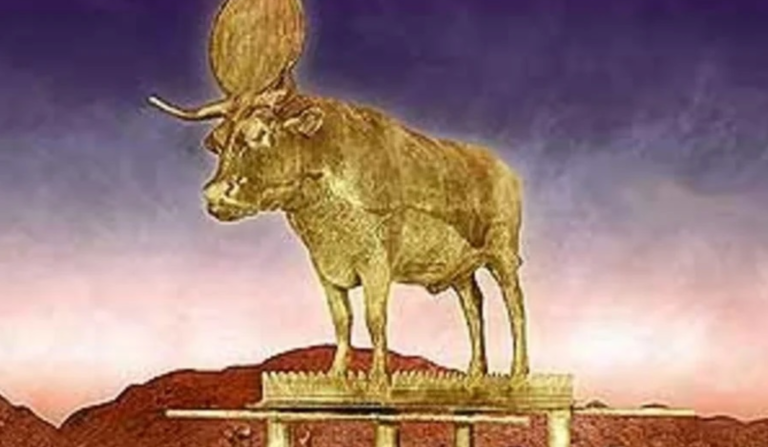Good, Good, Good...Good Vibrations

Three basic types of motion exist for objects in the universe: translation, rotation and vibration. Translation refers to movement from one position to another position and rotation refers to a spinning movement around a given position. Neither one of these two types of motion is essential. We can fix objects in place so they don’t translate or rotate. However, vibration is different. Vibration refers to a back and forth movement (or oscillation) across an equilibrium position. A very interesting property about vibrational motion is that it cannot be stopped. No matter what we may do to try to stop objects from vibrating, they’ll still vibrate. Maybe they won’t vibrate with as much intensity as before but the objects are still vibrating. Even though our senses may not be able to detect the vibrations, sensitive instruments could detect the vibrations. Therefore, vibrations are a fundamental aspect of our universe. We can’t stop them.
Vibrations have their roots in the higher worlds, and by gaining an understanding of these roots, we will be able to navigate through the difficulties and challenges of life with less stress and with more acceptance.
The beginning of Sefer Yechezkel briefly describes the pathway to prophecy. One small piece of this description is very pertinent to our topic. Describing the movement of the four holy living creatures, Yechezkel writes (1:14), וְהַחַיּוֹת רָצוֹא וָשׁוֹב כְּמַרְאֵה הַבָּזָק (And the living creatures were running and returning like the appearance of a flash). What does it mean that they were running and returning (ratzo v’shov) and that their appearance was like a flash? Rashi explains: פירשו רבותינו רצוא ושוב כלהבת הכבשן שיוצאה תמיד מפי הכבשן וממהרות לחזור וליכנס כך כשמוציאות ראשן מתחת הרקיע הנטויה למעלה מהן כמו שמפורש בענין נרתעות מפני השכינה שלמעלה מן הרקיע וממהרות להשיב את ראשן (Chazal explained ratzo v’shov like the flame of a furnace, which constantly shoots out of the mouth of the furnace and hastens back to enter. So when they would thrust their heads out from under the expanse that was stretched out above them, as is explained, they would recoil because of the Divine Presence [Shechinah] which was above the expanse, and they would hasten to pull their heads back down). In other words, they were vibrating. Their inner desire was to approach the Shechinah so they would do ratzo, but the holiness of the Shechinah was so intense that they couldn’t endure it for very long, so they needed to withdraw and move back (shov) just enough before they began the oscillation all over again.
Two extremes are, therefore, mitigated by the vibration. On the one hand, without the shov, the holy living creatures would run headlong into the Shechinah and essentially dissolve their own existence into the Ein Sof. And on the other hand, without the ratzo, they would recoil forever, becoming more and more distant from the source of holiness. Therefore, in this mode of perpetual vibration, they can endure essentially forever in a tremendously high state of ecstasy and holiness.
About this phenomenon, Rebbe Nachman writes in Likutei Moharan 6:4: וּכְשֶׁרוֹצֶה אָדָם לֵילֵךְ בְּדַרְכֵי הַתְּשׁוּבָה, צָרִיךְ לִהְיוֹת בָּקִי בַּהֲלָכָה, וְצָרִיךְ לִהְיוֹת לוֹ שְׁנֵי בְּקִיאוּת, הַיְנוּ בָּקִי בְּרָצוֹא, בָּקִי בְּשׁוֹב (And when someone wants to go in the ways of repentance [teshuvah], he needs to be an expert in halachah. And he needs to have two [other types of] expertise, i.e. to be an expert in ratzo and an expert in shov). Rebbe Nachman goes on to explain from the wording of the Zohar in Haazinu 292a that this is an aspect of entering and exiting (just as Rashi said when explaining the vibrational movements of the holy living creatures), and this is what David ha-Melech was explaining when he said (Tehillim 139:8): אִם־אֶסַּק שָׁמַיִם שָׁם אָתָּה וְאַצִּיעָה שְּׁאוֹל הִנֶּךָּ (If I ascend to heaven, You are there; and if I make my bed in hell [sheol], behold, You are there.) In other words, it didn’t matter where he went, Hashem was always with him. And the same is true for each and every one of us. Sometimes, we ascend up to the highest sublime heights, and we feel like we’re riding a wave and everything is perfect and beautiful and going just right, i.e. ratzo. And other times, we feel like we’ve descended to the bottomless pit, dark and dreary, and nothing could be worse, i.e. shov. But both, the ascent and the descent, are really just imposters. One is no greater than the other. In fact, both are necessary experiences for this life. Why? Because both teach us that Hashem is One and that He is to be found everywhere. Everywhere! And this is what Shlomo ha-Melech expressed in his wisdom (Shir ha-Shirim 6:2): אֲנִי לְדוֹדִי וְדוֹדִי לִי (I to my Beloved and my Beloved to me). In other words, “I [go] to my Beloved”—this is ratzo—going toward, rising, ascending—and “My beloved [goes] to me”—this is shov—going away, sinking, descending. Even in sheol, in the pit of gloom and doom, Hashem comes to us, visits us, and waits for us. We just need to reach out and search for Him.
Rebbe Nachman teaches that if we really want to be masters of teshuvah, to be real baalei teshuvah, then we need to be experts in both ratzo v’shov. We need to enjoy the heights and revel in them, but at the same time, know that they are just one side of the oscillation. A descent will inevitably follow. And the descent is okay too because the descent is just the other half of the oscillation. Don’t allow yourself to become depressed and to despair. You are not alone in sheol. Hashem is there with you. He comes down to sheol to help you find your way out. In fact, He precedes you there! The ascent will inevitably take place. As sure as the coming of morning after a long night, the sun will rise again. Be patient and reach out. Utter a word of thankfulness. Sing. Dance. There is no reason to be filled with despair. The shov is just the prelude to the ratzo. And when we achieve a calm and settled mind we can become masters of teshuvah.
Before we conclude, we will look at two examples from the Torah that teach about the dangers of refusing to accept the reality that to be really successful at life we need to become experts at ratzo v’shov. The first is the story of Korach and his assembly. Korach disputed with Moshe because of his uncontrollable desire for honor, his conceit and his jealously. Once he learned that due to the sin of the spies, Hashem decreed that the Jews would not be able to enter the Promised Land until the end of 40 years, he had no use for the Tzaddik, for Moshe Rabbeinu. And as a result, he had no use for ratzo. In truth, he didn’t want to ascend and be close to Hashem. He wanted honor for himself, and he did not want to give honor to Hashem or to Hashem’s trusted servant. But more deeply, he couldn’t ascend anymore because he cut himself off from the Tzaddik. And so what happened to him and to his company? They stopped vibrating. As it is written (Bemidbar 17:32): וַתִּפְתַּח הָאָרֶץ אֶת־פִּיהָ וַתִּבְלַע אֹתָם וְאֶת־בָּתֵּיהֶם וְאֵת כׇּל־הָאָדָם אֲשֶׁר לְקֹרַח וְאֵת כׇּל־הָרְכוּשׁ (And the earth opened its mouth and swallowed them up, and their households, and all of Korach’s men, and all their possessions).
The second story concerns Nadav and Avihu. Being huge tzaddikim, their desire was to ascend and keep on ascending. But all they wanted was ratzo. They had no use for shov. They didn’t want any part in the descent. And so what happened to them? They went straight up and were burned by the light which they could not bear, as Hashem told Moshe (Shemot 33:20): לֹא תוּכַל לִרְאֹת אֶת־פָּנָי כִּי לֹא־יִרְאַנִי הָאָדָם וָחָי (You are not able to see My face because a man cannot see Me and live). But their death was diametrically opposite to the death of Korach and his company, as it is written in Zevachim 115b: כיון שמתו בני אהרן אמר לו אהרן אחי לא מתו בניך אלא להקדיש שמו של הקב"ה כיון שידע אהרן שבניו ידועי מקום הן שתק (Once the sons of Aharon died, he [Moshe] said to him [Aharon], ‘Aharon, my brother, your sons did not die except to sanctify the name of the Holy One, Blessed be He. When Aharon knew that his sons were the intimate ones of Omnipresent One, he became silent). Although they died in a sanctification of the Name, they also stopped vibrating.
Learn to avoid the errors of Korach and his company and of Nadav and Avihu, i.e. the pitfalls of failing to appreciate the necessity of ratzo v’shov. To be alive is to vibrate. If we stop vibrating, we cease to live. And if we are to become experts at teshuvah, we need to navigate both sides of the oscillation equally. As Rudyard Kipling said in his famous poem If—: “If you can meet with triumph and disaster and treat those two imposters just the same...Yours is the Earth and everything that’s in it. And—which is more—you’ll be a Man, my son!”






